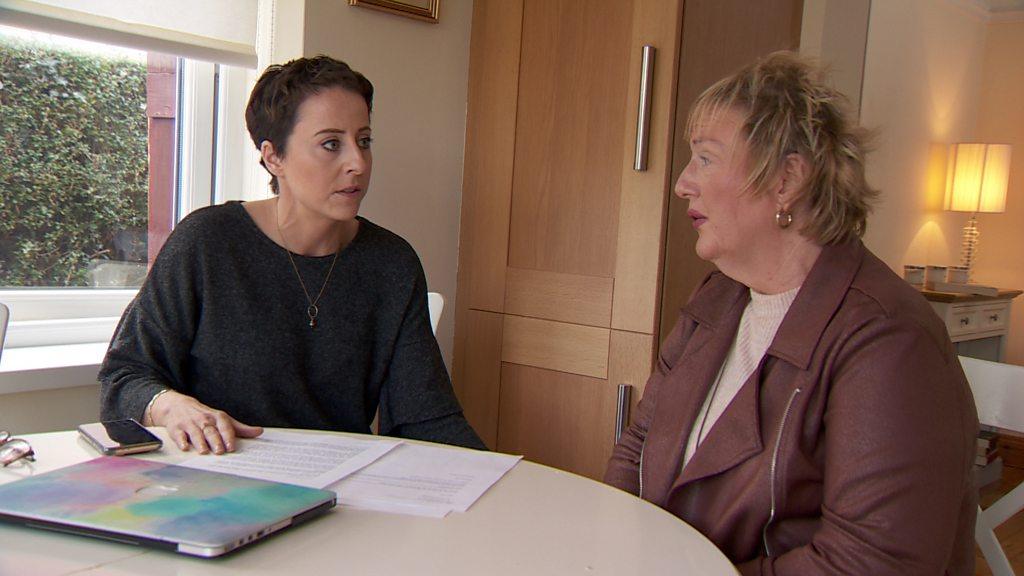Woman from Bedford with incurable cancer campaigns for scans
- Published
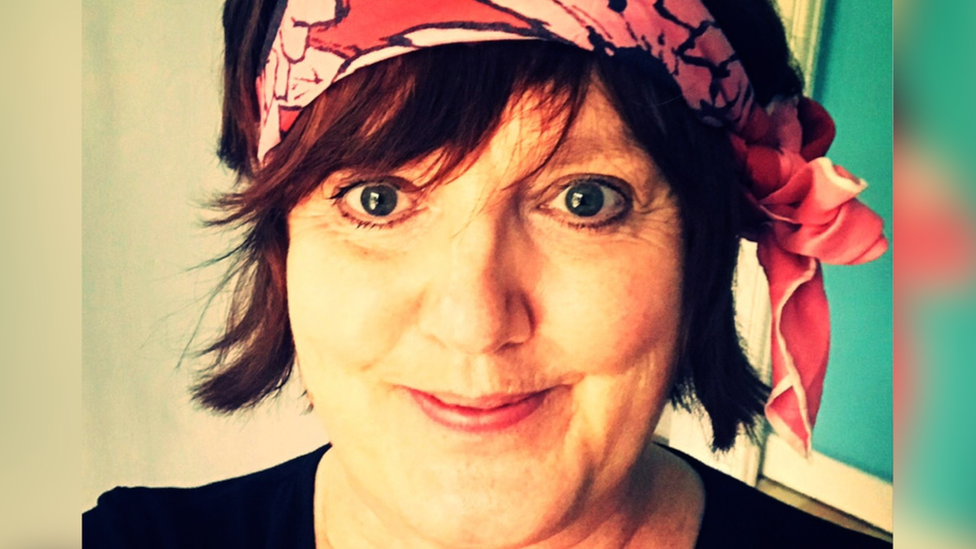
Sharon Baker has got secondary breast cancer which was diagnosed too late for targeted treatment
A mother-of-four with incurable cancer is campaigning for people who have had breast cancer to get regular scans in case the cancer comes back elsewhere.
Sharon Baker, 61, from Bedford, has secondary breast cancer, meaning it has spread to other parts of her body.
She was only offered a yearly mammogram after finishing treatment for her primary cancer.
A body scan should also be offered, she believes, because secondary breast cancer does not return to the breast.
Nearly 150,000 people have signed a petition she started on the issue.
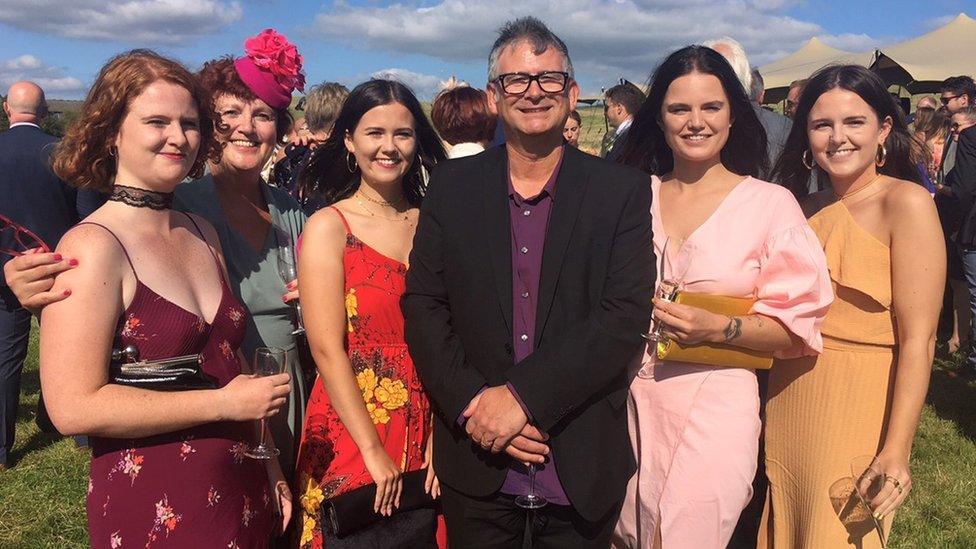
Sharon has been married to her husband Richard for 37 years and they have four daughters
"I'm determined that others won't be in the same situation as me," she said.
"Every day, 31 women die of secondary breast cancer, a lot of them are very young women. I just want to make sure they can get earlier treatment and live longer."
Mrs Baker, who has four daughters and works with special needs pupils at a secondary school, was originally diagnosed with breast cancer in 2016.
After recovering, she was offered an annual mammogram but it did not detect that her cancer had come back in other areas.
"Despite being at high risk of my cancer returning, I was never offered a scan alongside my mammogram," she said.
"I've had excellent treatment on the NHS but by the time I was diagnosed last summer, the cancer had spread to my bones and now it is in my brain.
"I continue to receive excellent treatment but I just feel not being offered monitoring body scans is a gap in what is otherwise a good provision for breast cancer patients."
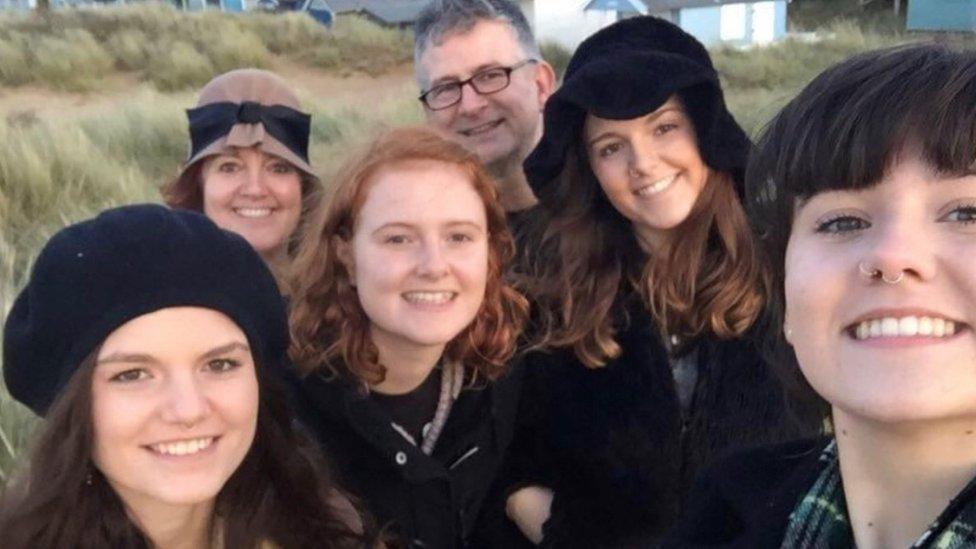
Sharon's family are very proud of her for raising awareness of the issue
There are an estimated 35,000 people living with secondary breast cancer in the UK, according to the charity Breast Cancer Now.
Up to 30% of those diagnosed with primary breast cancer will develop secondary cancer.
It cannot be cured but there are treatments that can slow it down, control it and relieve symptoms, the charity said.
Melanie Sturtevant, associate director of policy, evidence and influencing at Breast Cancer Now, said prompt diagnosis was the "critical first step" for quick treatment.
"We're working hard to raise awareness of these symptoms among GPs, empowering them to recognise cases of possible secondary breast cancer as quickly as possible," she added.
The secondary breast cancer charity Make 2nds Count, founded by Lisa Fleming, 38, from Edinburgh, said it was "very much a forgotten form of cancer".
"It is crucial that secondary breast cancer is diagnosed as swiftly as possible since there is evidence that early access to treatment options can improve the outcomes and quality of life of women and men with this form of the disease," she said.
An NHS spokesperson said it follows NICE guidance on follow-up checks and imaging for patients after cancer treatment.
"The NHS is funding a clinical audit of patients with secondary breast cancer to provide a unique insight into the experiences and needs of this group of people, and we'd encourage everyone to come forward for their screening when invited," the spokesperson added.
NICE confirmed scans were not a routine part of its recommendations.
However, it said that alongside an annual mammogram, it also recommended "an agreed, written care plan", which should include signs and symptoms of metastatic cancer and contact details for immediate referral to specialist care.

Find BBC News: East of England on Facebook, external, Instagram, external and Twitter, external. If you have a story suggestion please email eastofenglandnews@bbc.co.uk
Related topics
- Published16 November 2021
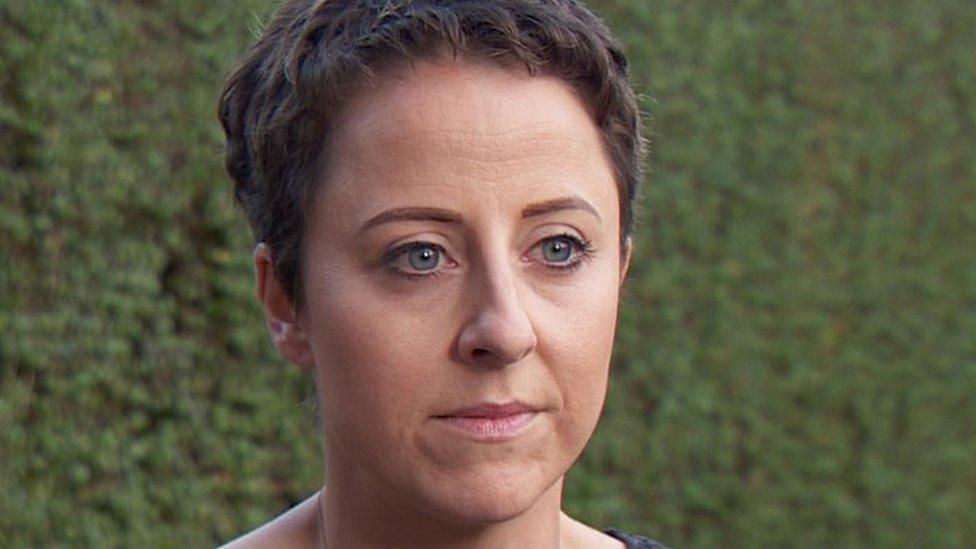
- Published7 October 2021
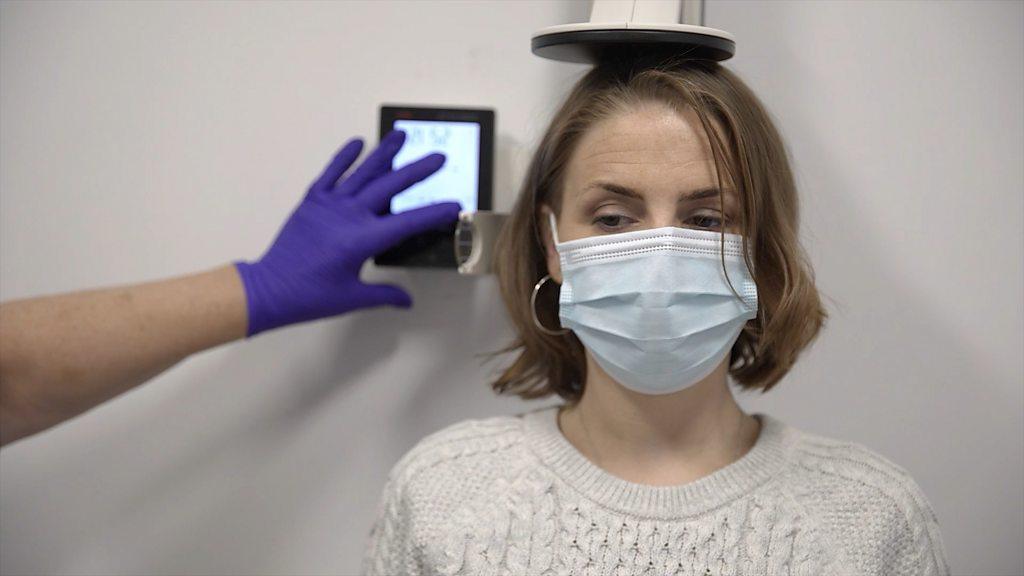
- Published9 October 2021
- Published11 October 2019
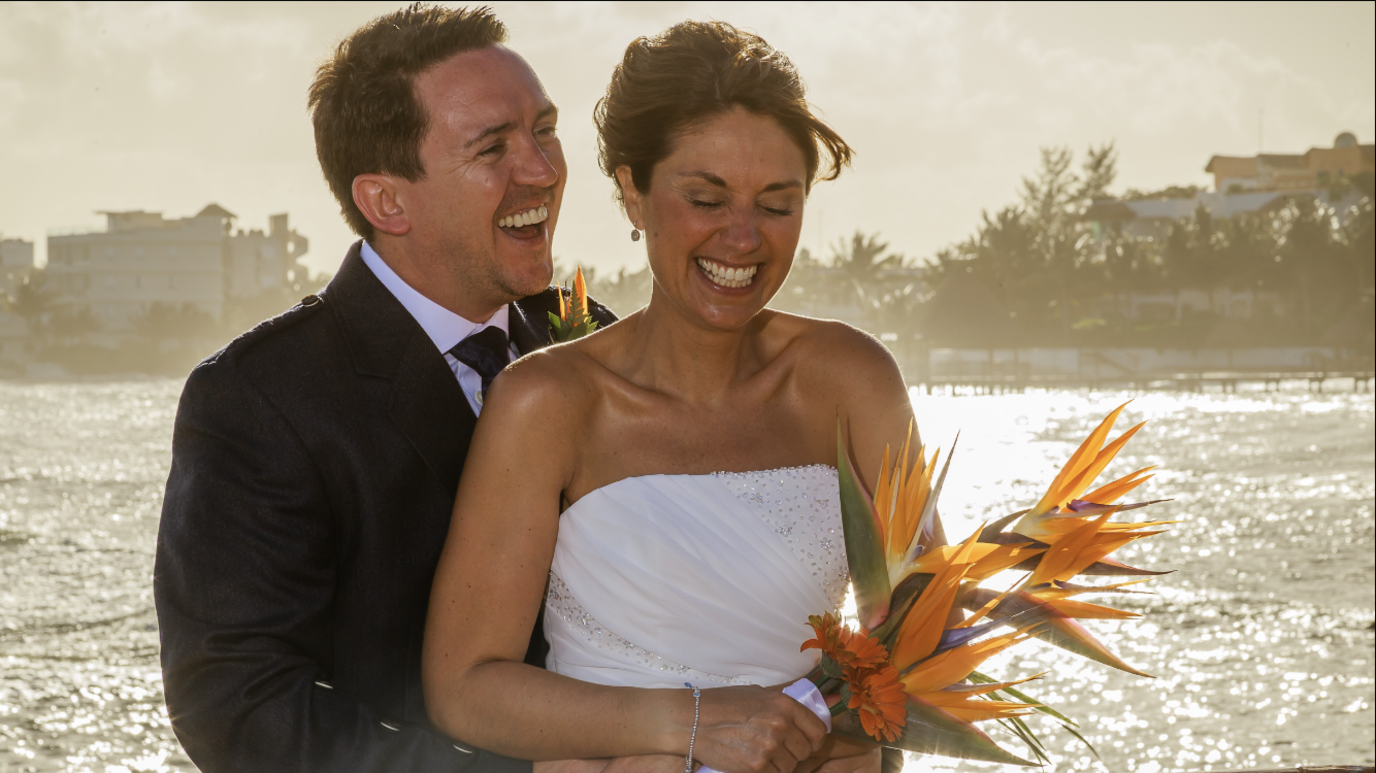
- Published16 March 2022
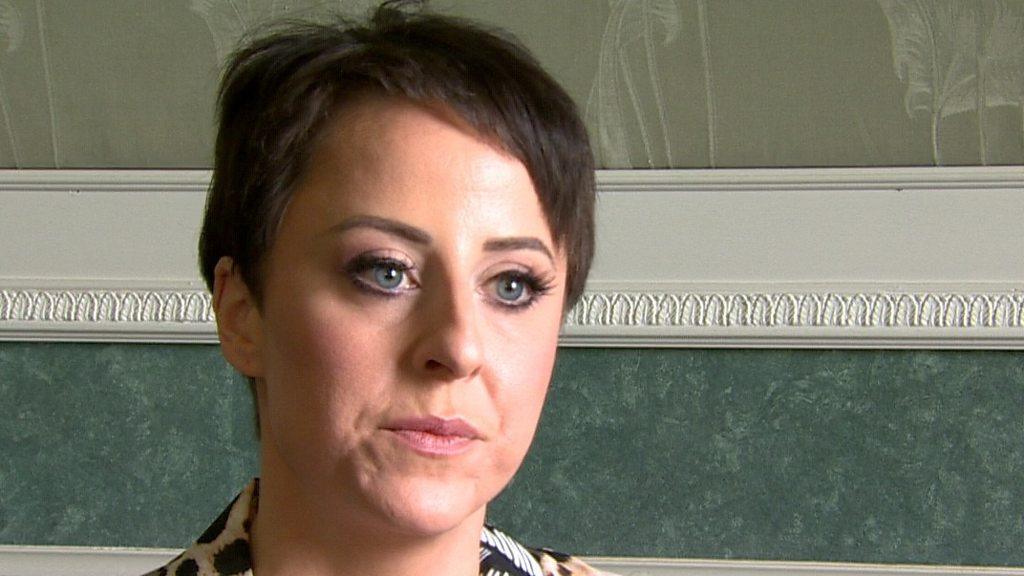
- Published16 March 2022
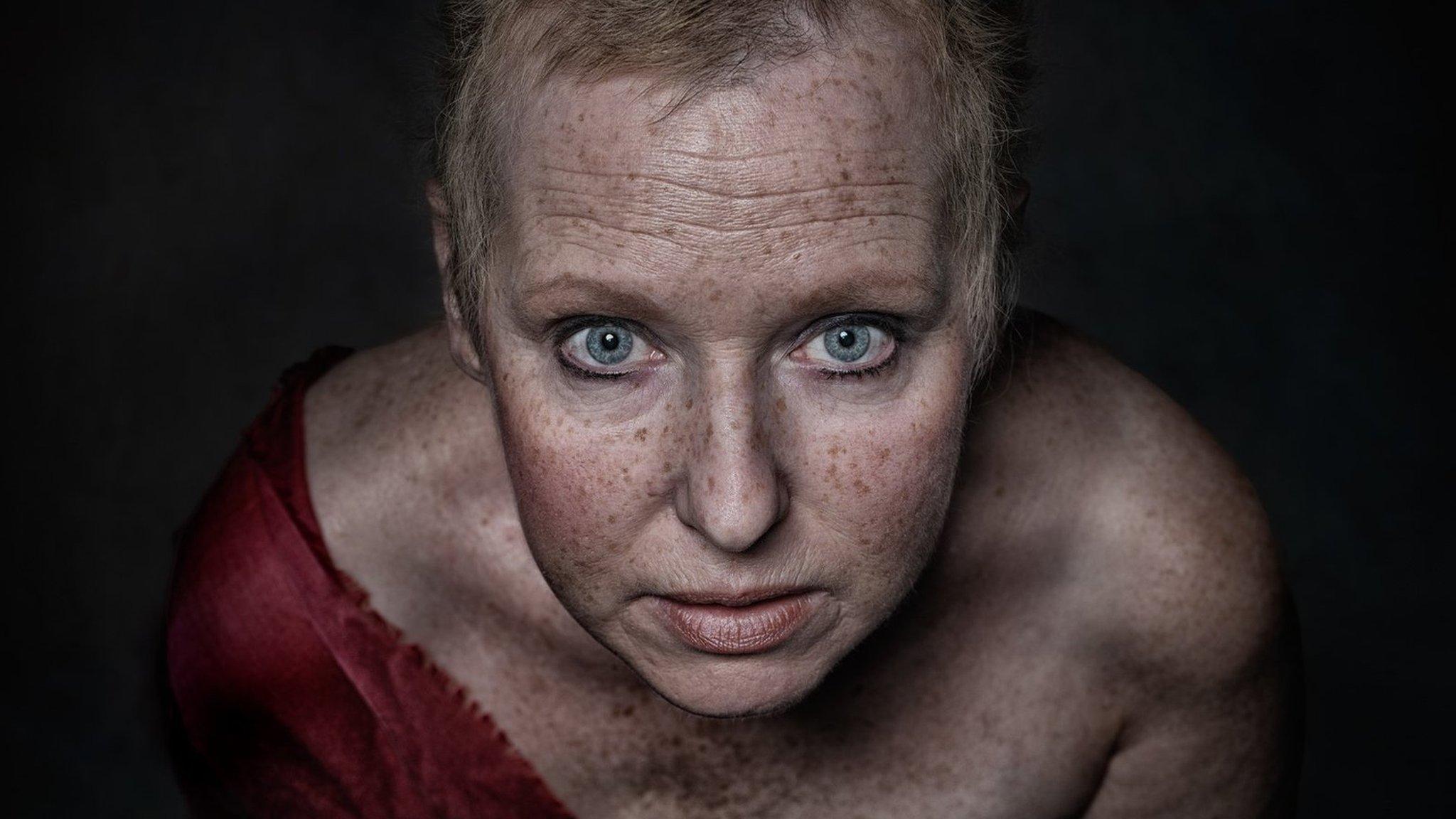
- Published16 November 2021
